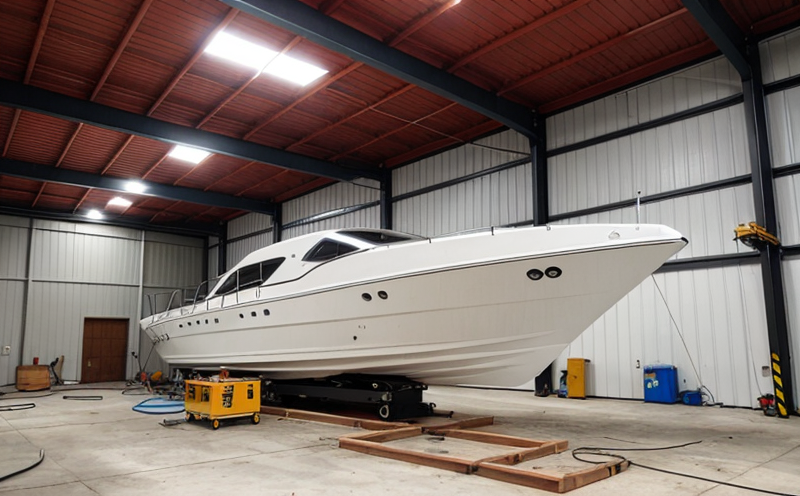ISO 22007 Thermal Conductivity Testing of Ship Hull Materials
The ISO 22007 standard provides a framework for thermal conductivity testing of building and construction materials, including those used in ship hulls. This service is particularly critical as it ensures that the materials selected for ship hull construction meet stringent requirements regarding insulation properties, which directly impact fuel efficiency, environmental compliance, and operational costs.
The testing procedure outlined by ISO 22007 involves subjecting a specimen of the material to controlled heat flow measurements. This enables the calculation of thermal conductivity (λ), which is essential for understanding how effectively the hull material can insulate against temperature changes. Proper insulation is crucial in marine environments where both high and low temperatures can have significant effects on performance.
The shipbuilding industry places a heavy emphasis on energy efficiency to reduce operational costs and environmental impact. By accurately measuring thermal conductivity, this testing ensures that materials chosen for ship hulls are optimized for these goals. For instance, reducing the heat transfer through the hull walls can lead to substantial savings in fuel consumption over extended voyages.
The process typically involves cutting a representative sample of the material from the intended application area and preparing it according to ISO 22007 specifications. The specimen is then placed into a thermal conductivity tester, where controlled heating elements apply consistent heat flux across its surface while monitoring temperature variations at various points within the sample.
The results generated by this testing are critical inputs for manufacturers and shipyards in selecting appropriate materials that balance cost-effectiveness with performance requirements. This service also supports regulatory compliance by providing data necessary to meet international standards such as ISO 22007, ensuring that products meet specific insulation criteria.
By accurately quantifying the thermal conductivity of hull materials, this testing helps prevent issues related to excessive heat build-up or cold transfer inside the vessel. It also aids in predicting long-term performance under varying environmental conditions, thereby enhancing overall safety and reliability of marine structures.
Regularly performing such tests throughout the manufacturing process allows for quality control measures aimed at maintaining consistent product specifications. This is especially important given the diverse range of materials used across different types of ships, from warships to commercial cargo vessels.
Why Choose This Test
- Ensures compliance with international standards such as ISO 22007.
- Provides critical data for selecting efficient insulation materials.
- Safeguards against potential safety and performance issues in marine structures.
This testing is indispensable for quality managers, compliance officers, R&D engineers, and procurement teams involved in ship hull design and manufacturing. It offers a reliable method to assess the thermal properties of materials used in ships, ensuring optimal performance and longevity.
Quality and Reliability Assurance
The precision and accuracy of ISO 22007 testing are paramount for maintaining high standards in ship hull construction. Rigorous adherence to these protocols ensures that all materials meet the necessary insulation requirements, contributing significantly to the overall quality and reliability of marine structures.
By incorporating this testing into their processes, manufacturers can ensure they consistently deliver products that not only comply with international standards but also excel in performance under real-world conditions. This commitment to excellence is crucial for building trust within the industry and beyond.
Competitive Advantage and Market Impact
- Leadership in adopting advanced testing methodologies aligns a company with global best practices, enhancing its reputation among clients and stakeholders.
- A demonstrated ability to meet stringent insulation standards can differentiate a business from competitors, attracting more customers seeking reliable and energy-efficient solutions.
In the competitive marine industry, where safety, efficiency, and environmental responsibility are key factors, this service provides a clear advantage. By leading in thermal conductivity testing, companies can position themselves as leaders in innovation and sustainability, driving market impact through enhanced product offerings and customer satisfaction.





